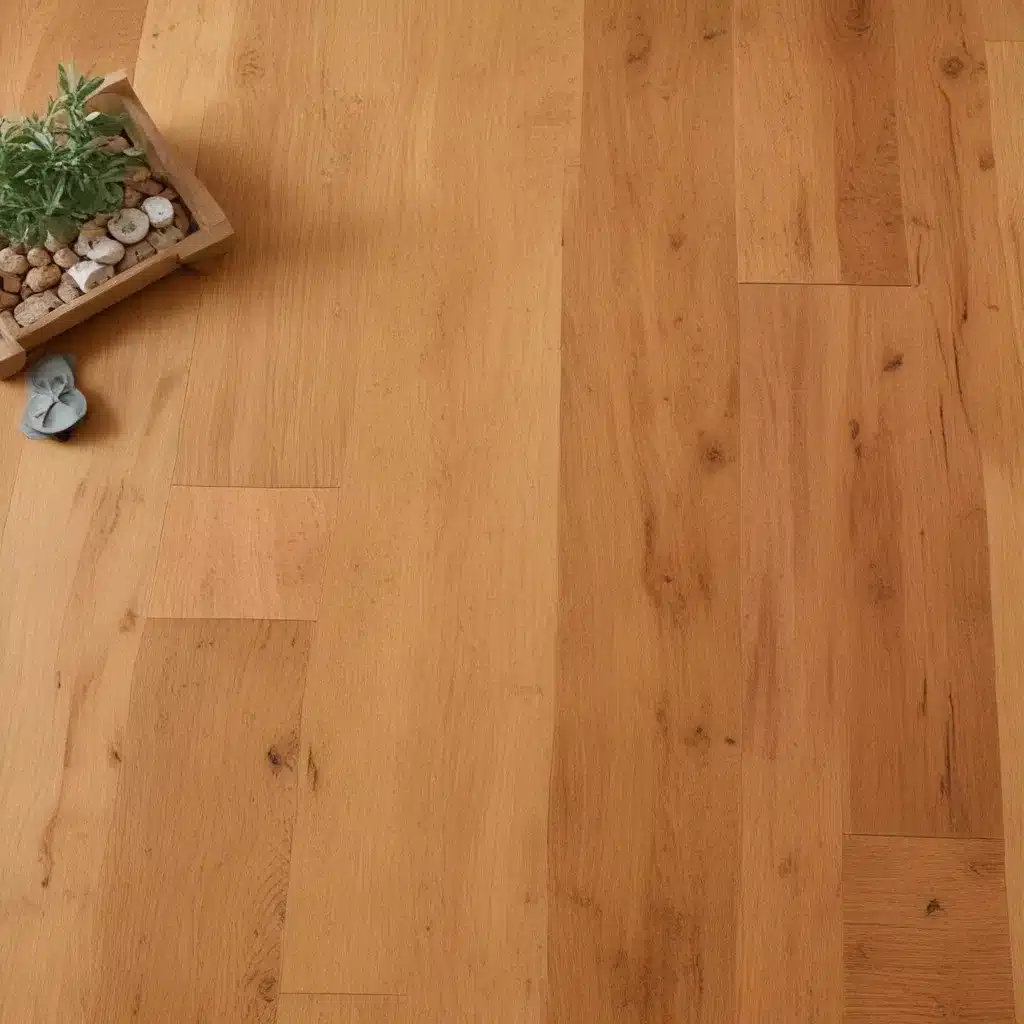
Navigating the UK’s Building Regulations and Sustainable Practices
As homeowners in the UK increasingly prioritize eco-friendly and energy-efficient home renovations, the demand for sustainable flooring options has risen considerably. One such material that has gained significant traction in the UK market is cork flooring, offering a versatile and environmentally responsible solution for your home improvement projects.
Understanding the Benefits of Cork Flooring
Cork, harvested from the bark of the cork oak tree, is a renewable and biodegradable material that boasts a range of desirable properties. Unlike many traditional flooring options, cork is a highly sustainable choice that aligns with the UK’s building regulations and environmental standards. It is renowned for its superior thermal and acoustic insulation, providing a comfortable and cozy feel underfoot while also contributing to improved energy efficiency in the home.
One of the standout features of cork flooring is its durability and resilience. The natural cellular structure of cork makes it highly resistant to wear and tear, ensuring a long-lasting and durable flooring solution. This is particularly beneficial in high-traffic areas, where traditional flooring materials may be more prone to damage over time.
Moreover, cork flooring is inherently water-resistant and hypoallergenic, making it an ideal choice for homeowners with sensitivities or those seeking a more healthful living environment. This attribute is especially valuable in the UK, where moisture and humidity can pose challenges for certain flooring types.
Navigating UK Building Regulations and Sustainability Practices
When it comes to home renovations in the UK, adherence to building regulations and a focus on sustainable practices are of paramount importance. The UK’s Building Regulations, set forth by the Ministry of Housing, Communities and Local Government, outline specific requirements and guidelines that must be followed to ensure the safety, energy efficiency, and environmental impact of any construction or renovation project.
For example, Approved Document L of the Building Regulations outlines the energy efficiency requirements for new and renovated buildings. This includes measures such as the use of energy-efficient materials, the installation of insulation, and the integration of renewable energy sources. By incorporating cork flooring into your home renovation, you can contribute to the overall energy efficiency of your property, potentially reducing your utility costs and carbon footprint.
Additionally, the UK’s sustainability agenda, driven by initiatives such as the Climate Change Act and the Net-Zero Strategy, emphasizes the importance of reducing waste, promoting the use of renewable materials, and minimizing the environmental impact of construction projects. Cork flooring aligns seamlessly with these goals, as it is a renewable, biodegradable, and recyclable material that can be sourced and manufactured in a responsible manner.
Comparing Cork Flooring to Conventional Options
When considering the cost implications of your home renovation, it is essential to evaluate the long-term benefits and cost-effectiveness of your flooring choices. While the initial investment in cork flooring may be slightly higher than some conventional options, such as laminate or vinyl, the long-term advantages often outweigh the upfront costs.
For example, the superior insulating properties of cork can lead to significant energy savings, potentially offsetting the initial investment over time. Moreover, the durability and low maintenance requirements of cork flooring can contribute to reduced replacement and repair costs, making it a more cost-effective solution in the long run.
To provide a more detailed comparison, let’s examine the average costs of different flooring options in the UK as of September 2024:
| Flooring Type | Average Cost per Square Metre (GBP) |
|---|---|
| Cork Flooring | £30 – £60 |
| Laminate Flooring | £15 – £40 |
| Vinyl Flooring | £20 – £50 |
| Hardwood Flooring | £40 – £100 |
It’s important to note that the cost range for each flooring type can vary depending on factors such as quality, brand, and installation requirements. Additionally, specific projects may require additional considerations, such as subfloor preparation or the need for specialized installation techniques.
Incorporating Sustainable Practices into Your Home Renovation
Beyond the selection of eco-friendly flooring materials, homeowners in the UK can also incorporate various sustainable practices into their home renovation projects to further minimize the environmental impact and align with the country’s building regulations.
One key strategy is to prioritize the use of recycled, reclaimed, or responsibly sourced materials wherever possible. This not only reduces waste but also supports the circular economy by giving new life to existing materials. For example, you could consider using reclaimed wood for your home’s interior finishes or incorporating recycled glass tiles into your kitchen backsplash.
Additionally, homeowners can explore energy-efficient upgrades, such as the installation of LED lighting, high-performance windows, and smart home technologies. These enhancements can contribute to lower energy consumption and reduced utility costs, further enhancing the sustainability of your home renovation.
Proper waste management and minimization should also be a focus during the renovation process. This may include measures such as recycling construction materials, donating usable items, and properly disposing of hazardous waste in accordance with UK regulations.
By integrating these sustainable practices into your home renovation, you can demonstrate your commitment to environmental stewardship and compliance with the UK’s building regulations and sustainability initiatives.
Conclusion
As homeowners in the UK seek to create more eco-friendly living spaces, the incorporation of sustainable flooring options, such as cork, has become increasingly popular. Cork’s renewable, durable, and energy-efficient properties make it an excellent choice for those looking to align their home renovations with the country’s building regulations and sustainability goals.
By understanding the benefits of cork flooring, navigating the UK’s regulatory landscape, and exploring additional sustainable practices, you can transform your home into a haven of environmental responsibility and cost-effectiveness. Embrace the sustainable flooring trends of 2024 and contribute to a greener future for your community and the UK as a whole.
To learn more about sustainable home renovation solutions and the latest industry trends, I encourage you to visit https://abc-home.co.uk/, a trusted resource for builders, contractors, and homeowners in the UK.
















